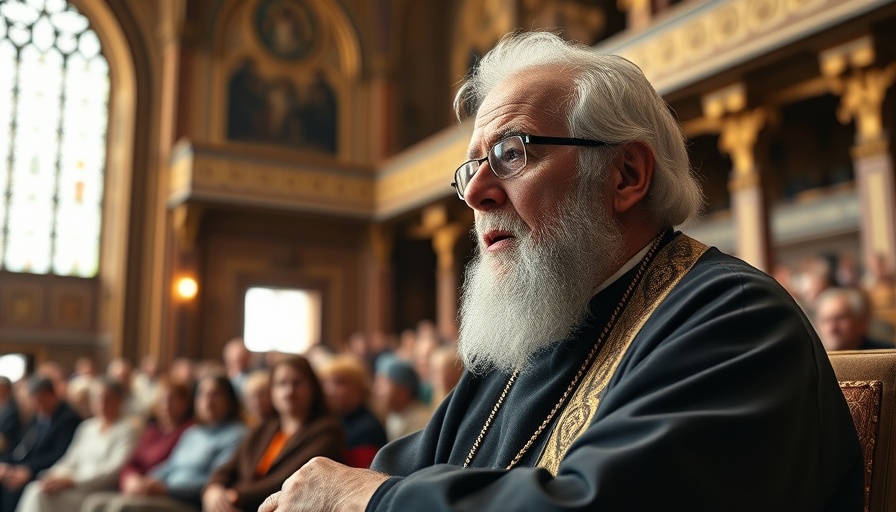
Pope Leo XIV's Pivotal Message on Freedom of Speech
Pope Leo XIV has made a resounding call for the release of imprisoned journalists, a statement that echoes across the globe and emphasizes the crucial role of free speech and a free press. In an age where journalism serves as a watchdog for democracy, the Pope's remarks resonate strongly with advocates for human rights and press freedom worldwide.
The Worldwide Struggle for Press Freedom
Press freedom is often a contentious issue, especially in certain regions of the world where authoritarian regimes suppress dissent and silence journalists. According to reports from organizations like Reporters Without Borders, the number of journalists imprisoned globally continues to rise, and many face dire conditions. Pope Leo XIV’s appeal comes at a critical moment as many countries are grappling with how to uphold democratic values in the face of censorship and suppression.
His affirmation of the "gift of free speech" reflects an understanding of journalism's unique position as a pillar of democracy. In the United States, for example, the First Amendment guarantees the right to free speech and a free press, principles that are foundational yet under increasing threat from various sectors of society.
A Call to Action for Global Leaders
In encouraging global leaders to take a stand against the imprisonment of journalists, Pope Leo XIV implores them to ensure that press freedoms are respected and upheld. This call is not merely symbolic—several nations, including those in the Americas and Europe, have set examples by supporting press freedom initiatives. By making the protection of journalists a priority, governments can foster transparency and accountability.
Local Perspectives vs. Global Issues
While the Pope’s message has a global reach, its implications strike a chord locally as well. Many communities in the U.S. rely on investigative journalism to uncover the truth about local issues, from government corruption to environmental crises. A free press ensures that these stories are told, empowering citizens and holding powerful actors accountable.
As young journalists in the U.S. face unprecedented challenges—whether it be financial instability within newsrooms or harassment while covering protests—the ability to report freely has never been more precious. Pope Leo XIV’s urgings may bring renewed energy and support to these challenges, with community leaders, educators, and young journalists championing the voice of the people.
Counterarguments: The Risks of Free Press?
Despite the overwhelming support for a free press, some argue that unrestricted press freedoms can lead to misinformation and societal strife. Particularly in an age of social media, the lines between journalism and opinion often blur, leading to confusion among the public. Critics of unrestricted journalism often stress the need for checks and balances to ensure that information disseminated is responsible and accurate.
However, Pope Leo XIV's message suggests that the real threat lies not in the freedom to express ideas but in the clampdown on those expressions. The fear of misinformation should not lead to a rejection of press freedoms; rather, it should inspire greater media literacy and accountability from both journalists and consumers alike.
The Emotional Impact of Imprisonment of Journalists
The imprisonment of journalists doesn’t just impact the media landscape; it also has profound emotional ramifications for families and communities involved. They face the anxiety of uncertainty, knowing that their loved ones are detained due to their commitment to revealing the truth. Pope Leo XIV’s advocacy sheds light on their plight, humanizing an issue that can seem abstract. He stresses not just the political implications of imprisoned journalists but the personal stories, fears, and resilience of those behind bars.
Act Now: Why It Matters
The Pope's clarion call is more than a historical statement; it is a rallying cry for action. As we reflect on the importance of press freedom and the dire situations many journalists face, it becomes crucial for individuals to support and advocate for policies that safeguard these freedoms. The next generation of journalists looks to older generations for support, mentorship, and advocacy.
Now is the time to rise and act. Contact local and national representatives to express your support for press freedoms, educate others on their importance, and contribute to organizations that strive to protect journalists worldwide. Free speech is a gift worth defending.
 Add Element
Add Element  Add Row
Add Row 



Write A Comment